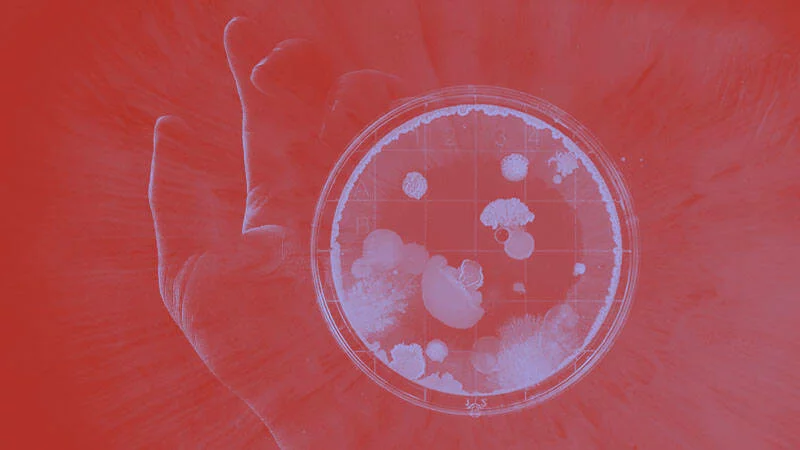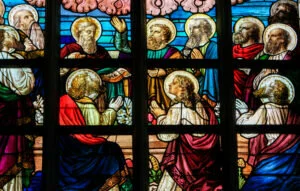Every time there is a natural disaster the question of God’s goodness and the nature of evil resurfaces. How can a good God allow bad things to happen? Is what we experience as evil bad in itself, or is our suffering from it part of the fallen order of creation? What do we say when innocent people are harmed by things over which they have no control? Does God not care about them enough to protect them from disaster?
Questions like these have been asked since the beginning of time. The book of Job is an extended meditation on this theme and in some ways, its answers are as enigmatic as the original question. When God answers Job and his friends he does not explain himself, but challenges the limitations of their perspective: “Where were you when I laid the foundation of the earth?” (Job 38:4). Or as Paul put it in a different context: “Who are you, O man, to answer back to God? Will what is molded say to its molder, ‘Why have you made me like this?’” (Rom 9:20). As creatures we have to live within the parameters set by the Creator, whether we like it or not. We were not asked to be made the way we are, and God is under no obligation to explain himself to us.
Goodness Two Ways
Having said that, God has not left us without a witness to his purposes, even if we have not been told everything. There are some principles that he has revealed to us and we must begin with them. Take the question of goodness. What is it? In the Bible, there are basically two kinds of goodness that have to be considered. The first is essential, natural, or structural goodness. This refers to the quality of the things that God has made. In Genesis 1 we are told that at each stage of the creation God paused to survey what he had done and saw that it was very good. This means that there is no inherent defect in any created thing that will cause it to malfunction. A car or a house may be badly built, but that is because their human makers are imperfect and may have made mistakes in the course of assembly or construction. God’s creation is not like that. If something goes wrong in his universe, it is not because his creative powers are faulty.
God’s creation is not like that. If something goes wrong in his universe, it is not because his creative powers are faulty.
The second kind of goodness is what we would describe as moral or spiritual perfection. This has to do with human behavior and is subjective in a way that structural goodness is not. Christians believe that there are moral principles that must be honored if goodness is to result, but they also believe that the greatest good is to do the will of God—and this may clash with generally stated moral precepts. Let us take an example. God has decreed that we should not kill (Exod 20:13). But God also told King Saul that when he had conquered the Amalekites he was to put them all to death (1 Sam 15:3). Saul did not do that, at least not to the extent that God had demanded, and he was held guilty because of it. A moralist might argue that Saul was right not to slaughter his enemies indiscriminately, and Christians today often object when massacres occur in warfare. Certainly nobody would use the precedent of the Amalekites as justification for disproportionate cruelty nowadays.
Saul was wrong, not because he refrained from indiscriminate slaughter, but because he disobeyed the express commandment of God. Doing the will of the Lord comes first, even if it appears to contradict general laws and principles of morality that would normally command our obedience. It is a hard teaching to accept, and many moralists have refused the claims of Christianity for this reason. To their minds, the God of the Bible is an unjust tyrant who does not even follow his own rules. To them, it seems that he tells us to do one thing and then does something quite different himself. Such a God appears to be arbitrary and the very antithesis of someone who is good, loving, and just.
Moralists will always have problems with Christianity for this reason. They cannot accept that in behavioral terms, goodness is determined by the quality of our relationship with God, and that relationship is measured by the degree of our obedience to him. That is what Job demonstrated. In all his sufferings he never cursed God, but submitted to the divine will, even though he clearly did not understand it. Job had a hard time—far harder than most of us can even imagine—but he was righteous in God’s eyes because his priorities were right. Job obeyed, even when it was costly for him to do so, and he was eventually rewarded for his faithfulness.
The Primacy of Obedience
The primacy of obedience determines not only how we should view moral and spiritual goodness in our lives, but also how we should decide what evil is. Nothing in the created order is intrinsically bad. Even Satan, the epitome of all that is wrong in the universe, was created good. God did not make an evil angel with the deliberate purpose of harming his creation. Satan became what he now is not because of some structural defect in him but because he disobeyed God. Instead of worshiping his Creator, he wanted to dispense with God and control his own life—in a word, to be free.This is how we ought to look at the coronavirus, and at all other manifestations of nature. It may be ugly in the way that it affects us, but it is neither good nor bad in moral terms. But in seeking that kind of freedom, he cut himself off from the source of his life and became instead an angel of death. Adam and Eve were tempted to follow him in his rebellion, and when they did so, they too left the realm of life and embraced (or were embraced by) death. The difference is that Satan is an immortal creature, so that while he is an agent of death, he does not himself die. Adam and Eve were created mortal, and when they sinned, the protection against death which they enjoyed in Eden was removed. The result was that they were forced to accept the consequences of their mortality, which would not be alleviated in this world.
To overcome death, human beings have to die and be born again—first spiritually, and then eventually physically as well. Christians live in an intermediate state. We are spiritually alive in Christ, who has given us the first fruits of eternal life, but we are still subject to the mortality of Adam. Unless we determine to commit suicide, we cannot predict how we shall die, but die we surely will. Jesus understood this and reminded his disciples of it:
Those eighteen on whom the tower of Siloam fell and killed them: do you think that they were worse offenders than all the others who lived in Jerusalem? No, I tell you; but unless you repent, you will all likewise perish. (Luke 13:4–5).
Jesus did not explain why the tower fell. Nor did he say whether God had picked out eighteen people for special suffering, other than to say that they were no better or worse than anyone else. For reasons unknown to us, their time on earth was up and they would have to face the judgment—just as we shall all have to do. The question is not whether we can avoid being struck by some version of the tower of Siloam, but whether we are right with God and ready to take our place in his heavenly kingdom. How and when we got there will not matter in eternity, when tears will be wiped away and death will be no more (Rev 21:4).
This is how we ought to look at the coronavirus, and at all other manifestations of nature. It may be ugly in the way that it affects us, but it is neither good nor bad in moral terms. In finding a home in human bodies it is merely doing what it was created to do. We may be able to deflect it and even eliminate it—that is part of the creation mandate that God has given us, to subdue and govern the earth. We may even discover some redeeming feature about the virus that is currently hidden from our view. What is certain is that even if we manage to control it, we shall not be getting rid of death or doing anything to reduce the power of evil over our lives. Only the shed blood of Christ can do that. It was in a pandemic that Moses lifted up the serpent in the wilderness, and that serpent was a prophecy of the coming of Jesus (John 3:14–15). In our modern distress he remains the way, the truth and the life. Nobody will come to the Father or be saved in any other way (John 14:6).







Comments
Be the first one to make a comment!